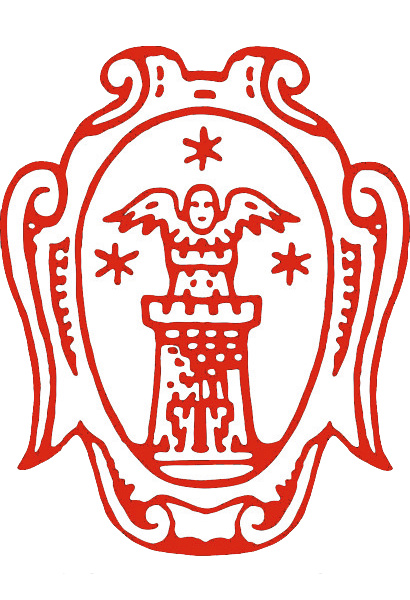These are rules for the election of the librarian, for the lending, distribution and relocation, for the sale of duplicates and the restoration of volumes and furnishings, for the opening and closing of the premises, which demonstrate the Rocca’s familiarity with the problems associated with the operation of libraries.
A rule in the Instrumentum prescribes that, if at the time of the election of the librarian there is in the convent of Rocca Contrada a father with the required qualifications, “he is to be proposed in the first place” and so, although Angelo Rocca continued to personally take care of his Library which at that time numbered around 20,000 volumes, he chose as his collaborator Fulgenzio Gallucci (from 1614 to 1620) from Montegiorgio.
The first years of the Angelica’s life are characterized by the activity of Augustinians from the Marche: from 1620 to 1647 another Marche native, Aurelio Floridi from Jesi, was prefect of the library; he was succeeded by Gabriele Foschi from Ancona and upon his death, in 1650, Paolo Lucchini from Pesaro became prefect.
The long series of librarians of the Marca Anconitana was interrupted only in 1677 with the death of Giovanni Tommaso Gironimi from Jesi.
Teaching and the care of Augustinian studies were the fundamental activity for Gianlorenzo Berti who worked in Angelica from 1745 to 1752 and who was commissioned by the Prior General Antonio Schiappinati to compile a new theological manual.
His successor, the librarian Agostino Giorgi donated to the Angelica his collection of books, which included a large Bodoni collection and the texts concerning Giorgi’s activity at the Propaganda Fide printing house.
The fact that Bellelli and Berti were present in the Angelica as scholars, librarians or donors of their personal collections, made the library acquire, during the 18th century, an even more precise physiognomy.
In 1873, Fr. Giuseppe Lanteri asked the Commission for the Liquidation of the Assets of the Ecclesiastical Axis to be able to continue, even under the Administration of the unitary State, to carry out his work in Angelica since it is a “not a monastic office that can be said to have ceased with the dissolution of the religious community of the Convent of St. Augustine, but really, and truly a scientific office…”.
The passage to the Italian State brought a substantial and profound change in the history of the Angelica.
The need of the Unitary State to refer the problems of the individual institutions to a national framework on the one hand mortified the autonomy of management that had characterized the life of cultural organizations such as the Angelica, on the other hand it inserted into a broader project and financed those initiatives that would have allowed a better knowledge and protection of the national book heritage.
The final removal of the Augustinians from the library was sanctioned, after the capture of Rome, by the Liquidation Council of the Ecclesiastical Axe which, on 29 December 1873, appointed Ettore Novelli as the first lay director, professor of eloquence, as well as founder and inspirer of the Roman poetic school, of which Novelli himself was a part.
A librarian, man of letters, scholar but also a politician, actively involved in the unification of Italy and in the management of the new State in the cultural field, he directed the Angelica Library from 1873 to 1898. In those years, the topographical inventories of the ancient collection were compiled, the Latin manuscripts and the purchase of the precious collections of the Massimo family fund and the Santangelo fund, which made it necessary to expand the available spaces, incorporating part of the premises previously used as shops and assigned to the adjacent Ministry of the Navy or to the convent.
The first decades of the lay management of the Angelica are marked, as in the time of the Augustinians, by the presence of directors and librarians of great value. The ordering of the manuscripts in three distinct collections: Latin, Greek and Oriental, and the attribution of the new signatures still in use today, are due to the will of Ettore Novelli.
A Domenico Gnoli, poet and author under various pseudonyms of many volumes of verses, literary and art critic, assiduous collaborator of the “Nuova Antologia”, which he directed from 1893 to 1897, and of other magazines, passionate scholar of the history and art of the city of Rome, is due to the publication of the anthology of the Poets of the Roman School and its vast archive partly preserved in Angelica.
As had happened for the Augustinians, the personal collections of Ettore Novelli and Domenico Gnoli also flowed into the Angelica library, which they themselves had direct.












